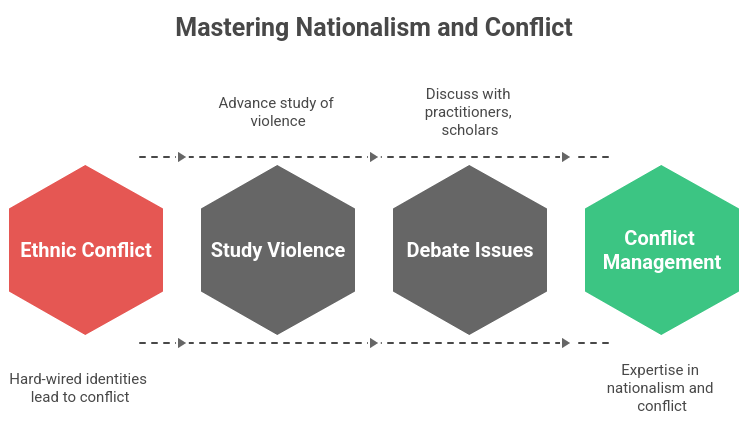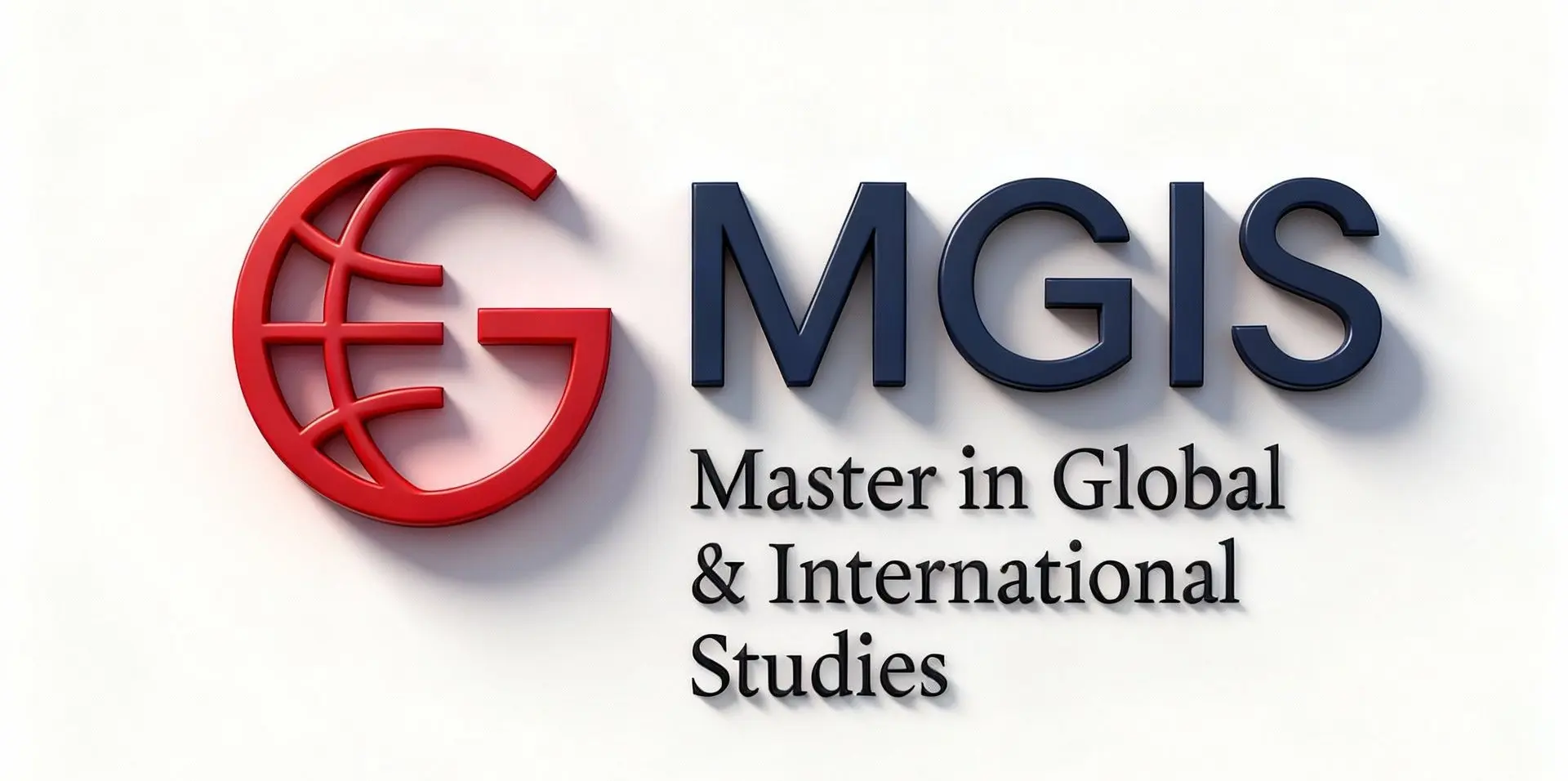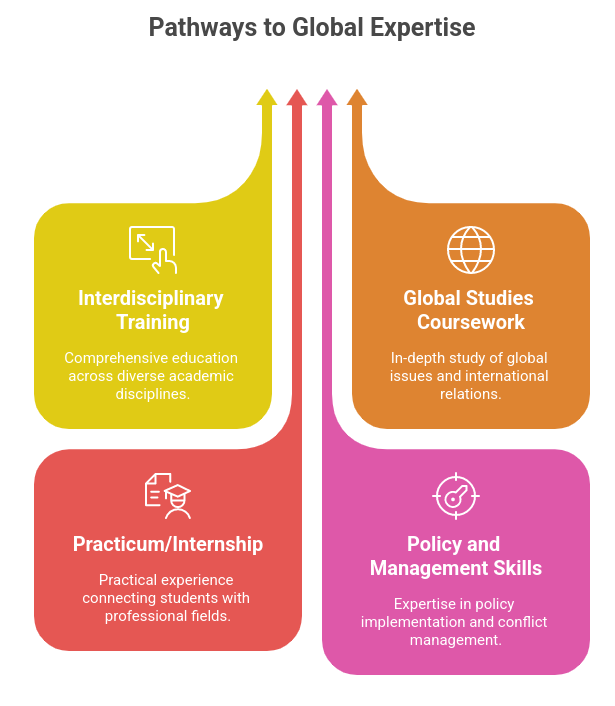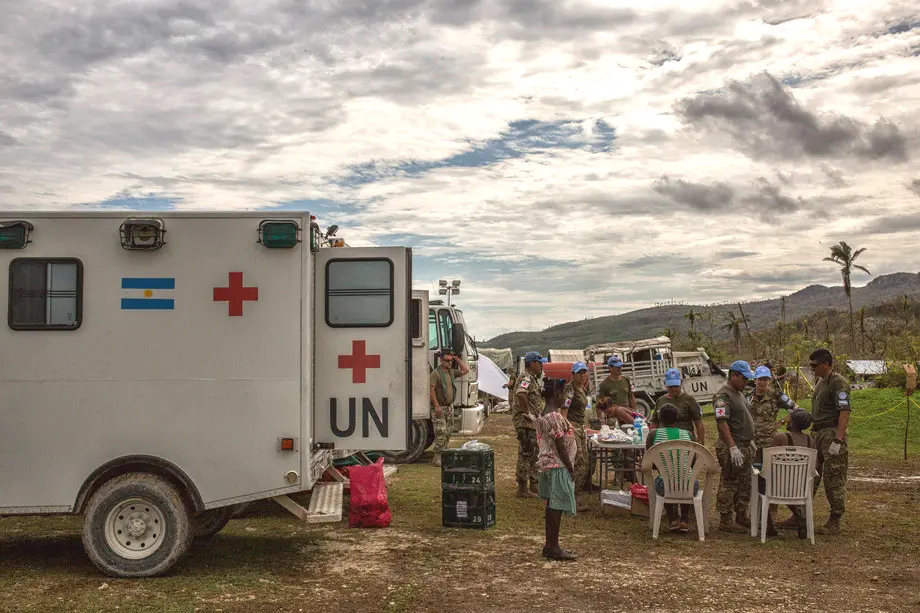Nationalism, Ethnic Conflict, and Identity Politics
Many commentators invoke “ethnic hatred” as the key explanation for conflicts ranging from Bosnia to Rwanda to the Ukraine. They argue that ethnic and national identities are hard-wired and inevitably lead to conflict. Such an understanding stands in sharp contrast to theories which treat ethnicity and nationalism as socially constructed, situational, and instrumental to identity projects. Neither of these positions is totally right. The transformation of warfare and organized violence, combined with highly contradictory understandings of the role of ethnicity and nationalism, require a fresh perspective.
This Master focuses on the intersection of conflict, conflict management, nationalism, and identity politics. While the twentieth century and the beginning of the twentieth first have demonstrated that nationalism, nationality, and ethnic conflict are a major source of conflict, we also know that nationalism and identity construction have positive effects on communal life, decreasing crime rates and helping institution building.

This degree at the University of Salamanca addresses these issues and creates new spaces for the training of new professionals with an expertise in nationalism and conflict management. It builds upon significant advances in the study of violence, terrorism, and conflict. Students will participate in debates on these issues with practitioners, scholars, and peers.
Training in Conflict Management, Peace Processes, and Global Security
This specialization is based on interdisciplinary training and offers students the tools that they will need to understand and address complex issues related to nationalism, ethnic conflict and peace processes not only in regions like the Middle East, Easter Europe or Africa but also in the European Union and the Americas.
Students develop an integrated understanding of the global challenges created by nationalism, ethnic conflict, and identity. They study the contemporary international system through coursework across different topics in the fields of Global Studies and International Relations (Peace & Security, Global Economics, History of War and Conflict, International Negotiation, Global Migration, International Organizations, International Law, Global Security, Terrorism, and Conflict Management). During the last semester students can also choose a practicum/internship project that connects them with the profession of which they want to be a part.
This concentration creates a professional who can implement the best policy and management responses to these rising challenges. This Master in Nationalism and Conflict Management is unique and stands alone in terms of offering both theoretical tools and practicums. Graduates will become a sought-out workforce by NGOs, governmental organizations, multinationals, and international organizations with peace keeping agendas.


Who can take this Masters?
Persons with backgrounds in the social sciences, humanities, ethnic studies, Law, management, negotiation, business, economics, governmental and non-governmental organizations, and/or other types of advocacies or private employment. Students with fieldwork experience and practitioners will find that this degree provides the needed tools to succeed in an academic career. Students with an academic background will find that this track is ideal to learn from practitioners and acquire experience through the selected practicums, especially those offered under our Global Internship Program.



